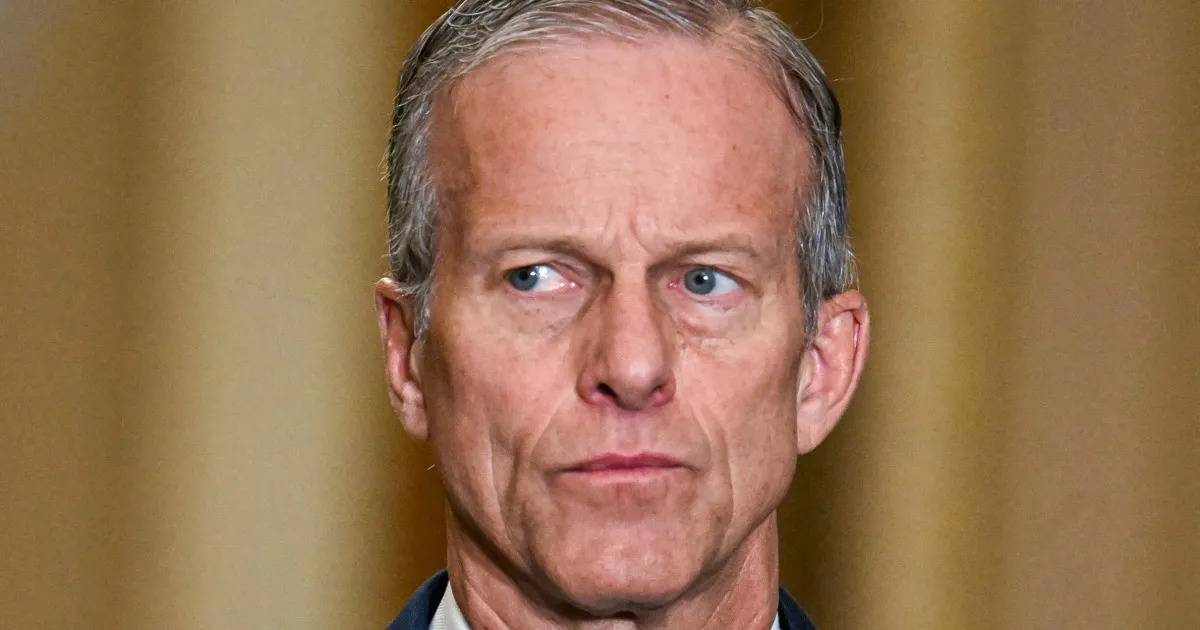
In a significant development on Capitol Hill, Senate Republicans unveiled a new budget blueprint on Wednesday aimed at facilitating $1.5 trillion in additional tax cuts. This proposal seeks to solidify the permanence of President Donald Trump's 2017 tax cuts, showcasing the GOP's commitment to advancing their fiscal agenda. With hopes to adopt this plan shortly, Republicans are looking to instruct committees to commence work on an extensive bill that aligns with Trump's priorities, including taxes and immigration funding.
Senate Republicans are strategically employing the budget reconciliation process to circumvent the 60-vote threshold that typically governs legislative action in the chamber. Holding a narrow majority of 53-47, this tactic allows the GOP to exclude Democrats from the decision-making process entirely, streamlining their ability to push through their proposals.
At the heart of the budget plan is a contentious new accounting method referred to as the “current policy baseline.” This approach enables Republicans to categorize the cost of extending Trump’s tax cuts as $0, a move that has drawn sharp criticism from Democrats. They label this accounting method as “magic math,” arguing that it obscures the multi-trillion-dollar implications of prolonging these tax cuts. In response, Democrats are actively exploring options to challenge this methodology.
The Senate GOP's budget resolution also proposes a substantial $5 trillion increase to the debt limit. This revised budget framework is a departure from an earlier plan that omitted any tax considerations. Pressure from Trump has led Republicans to pursue his agenda through a comprehensive, singular piece of legislation. Senate Majority Leader John Thune from South Dakota expressed the urgency of moving forward, stating, “It is now time for the Senate to move forward with this budget resolution in order to further advance our shared Republican agenda in Congress.”
Thune further indicated that the Senate parliamentarian has reviewed and deemed the Budget Committee’s substitute amendment suitable for consideration under the Budget Act. However, this assertion has been contested by a spokesperson for Senate Budget Committee Democrats, who claimed that any assertion regarding the approval of the current policy baseline is inaccurate.
The release of the budget text followed a meeting between a group of GOP senators and Trump, as noted by Sen. Lindsey Graham from South Carolina, the chair of the Budget Committee. Graham confirmed that Trump is fully supportive of the Senate's proposal and the process involved in cutting spending.
This budget measure opens avenues for an increase in military spending by $150 billion and an additional $175 billion for immigration enforcement. However, the proposed spending cuts within the Senate budget are relatively modest, amounting to only a few billion dollars across various committees. GOP leaders emphasize that these cuts are not definitive targets but rather serve as flexibility maneuvers in case desired savings are not achieved.
In response to the GOP’s proposals, Senate Minority Leader Chuck Schumer from New York criticized the Republicans, stating, “Senate Republicans are so hell-bent on cutting taxes for billionaires, they’re now willing to detonate the rules of the Senate, violate norms and traditions, and break their word to get it done.” He further remarked that the “current policy baseline” gimmick is unlikely to gain acceptance, describing it as “hocus pocus.”